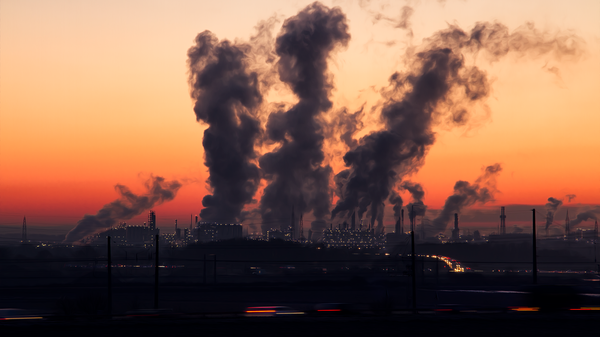As a result, the European Commission stated it was concerned about the pace of progress in achieving the limits set by EU legislation, especially given over 75 percent of EU citizens support these laws, and almost 80 percent believe in protecting the environment in their respective countries.
#AirPollution: The new Environmental Implementation Review shows that 23 EU countries breach air quality standards! https://t.co/EbaAfCHy0x pic.twitter.com/aQpAxICQqt
— Pierre Dornier (@PierreDornier) February 6, 2017
Legal action will almost certainly follow against perpetrators; in the two years between January 2015 and 2017, the Commission launched legal action against 12 member states (Austria, Belgium, Czech Republic, Germany, Denmark, Spain, France, Hungary, Italy, Poland, Portugal and the UK) for failing to enforce air quality standards on nitrogen dioxide, and each faces a fine for doing so.
However, environmental expert Dr. Viviane Gravey, a lecturer in European Politics at Queen's University Belfast, believes current EU measures are insufficient for dealing with the problem.
"By the time these rulings are made, forests have already been destroyed, and people are already dead. Legal challenges aren't working, and they're extremely costly," Dr. Gravey told Sputnik.
Air quality deficiencies are the single largest environmental cause of premature death in urban Europe, with 403,000 dying in 2015 alone.
Current air pollution in #Europe. #smog
— Michał Kaczerowski (@m_kaczerowski) January 28, 2017
Map: https://t.co/AZinb3t6aQ pic.twitter.com/oIup3HINEL
While EU rules on pollution are stronger, and stricter, than any other — "they're legally binding, unlike other international organizations', and hold member states to far higher standards of air quality than their own laws do," Dr. Gravey explained — the high ambitions behind them have also hindered progress to a degree.
"They were drawn up in the 1970s and 80s by environment ministers and the like, drawn from Member States. However, member states themselves — and their respective finance departments — had no idea what they were signing up to at the time, as the policies weren't costed. Now, member states are finding the policies expensive, and technically challenging, to effectively enact," Dr. Gravey continued.
Air pollution in Europe up to 7 cigarettes/day health equivalent for each man woman child. In China and India: 20 cig/day. Good air in US. pic.twitter.com/K0Sg1ZuS8n
— Richard Muller (@RichardAMuller) January 26, 2017
"These difficulties are exacerbated by mainstream media reporting. Media outlets are dependent on corporate advertising, and they could upset an automaker that advertises with them, or lose their business, if they publish articles about the negative effects of cars on the air. Major polluters are often backed by very effective lobby groups, too."
Horrific Air Pollution in Europe: Horrific Air Pollution in Europe Reaches 7 cigarettes per day… https://t.co/4xhmT6Qznc | @berkeleyearth pic.twitter.com/AseuS9NUc1
— CLMT Berkeley (@CLMTBerkeley) January 26, 2017
However, European air quality is not a lost cause. Dr. Gravey believes progress is possible — air quality has actually much improved over time, but methods of measuring pollution have greatly increased, so awareness is ever-increasing. Concurrently, rules have gotten stricter, as associated health and environmental issues are much better understood.
Air pollution is fourth-highest risk factor for death worldwide | Europe not looking good | StatistaCharts pic.twitter.com/6shmZYQJuh
— neuro.social.self (@neurosocialself) May 21, 2016
"Citizens should pressure politicians and the media to document the true extent of pollution's effects. They can document and share pictures of environmental damage. They can also change their own habits too, particularly around driving and heating," Dr. Gravey concluded.


